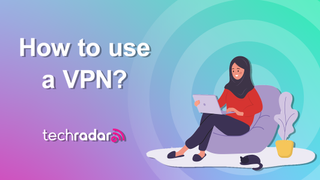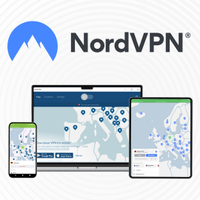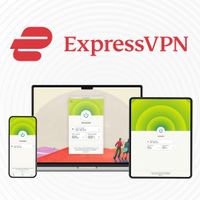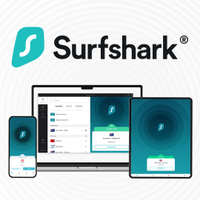How to use a VPN
Wondering how to get started with a VPN? Here's what you need to know

Once upon a time, virtual private networks were mostly used by employees who needed to access work networks from home or on the go—since then, they've come a long way. There are now hundreds of commercial VPNs available to just about everyone.
The best VPNs keep you safe online, protect your digital privacy, and can help unblock international streaming content—which is great, but might sound a little intimidating to VPN newbies. However, you don't have to be a tech expert to use one.
I'll show you a quick and easy way to get set up with your VPN and why you should invest in one in the first place.
Recent updates
I've given this article some much-needed TLC, improving the navigation elements, updating the facts and figures to reflect our most recent VPN testing results, and other tweaks.
What is a VPN?
In a nutshell, a VPN is a privacy tool that routes your traffic through a secure tunnel, where it's encrypted. This encryption prevents third-party snooping – so, your internet service provider (ISP), government, and any nosy cybercriminals won't be able to keep tabs on the sites you visit.
VPNs also assign you a new, temporary IP address based in a location of your choice. Connect to a server in the US, for example, and you'll be given a US IP address – and the sites you visit will think you're in the US, too. This is how VPNs can help bypass geo-restrictions and other blocks that might otherwise prevent you from checking out region-specific content.
How to use a VPN
Today's top VPNs are easy to download on virtually any device – including desktops, mobiles, consoles, smart TVs, and routers. The process can vary slightly depending on the platform, but here's my quick guide to VPN setup:
- Pick a VPN provider: there are a lot of VPNs out there to choose from – but they're not all worth your money. Stick to the best secure VPNs for round-the-clock protection, or check out the best cheap VPNs to bag a bargain.
- Download and install the VPN app: next, you'll want to visit the provider's website and pick your plan. Choose the subscription length and tier, and make sure you download the right app for your device.
- Log in to the VPN app: once your download is complete (and it shouldn't take long), just log in with the credentials you created when picking your plan and creating your account.
- Choose a VPN server: here's where the magic happens. On your VPN app, you'll see a list of servers dotted all over the world. You can pick and choose yourself, or hit a "quick connect" button to automatically be paired up with a speedy server based on your location.
How to choose the right VPN server
As I mentioned earlier, most VPNs have a handy 'quick connect' feature that'll match you with what it thinks is the best server for you. However, there might be times when you want to take matters into your own hands—if you want to access content from a specific region, for example, or find a server that’s closer to your current location and, therefore, a little quicker.
Are you a pro? Subscribe to our newsletter
Sign up to the TechRadar Pro newsletter to get all the top news, opinion, features and guidance your business needs to succeed!
Severs are typically organized into lists; some VPNs let you rifle through them via a search bar and some even have servers dedicated to specific tasks, like unblocking streaming platforms, gaming, and torrenting. NordVPN has a pretty nifty interactive map that you can use to click on the location you want to connect to.
Why use a VPN?
So, now that we've gone over the setup process and how to pick out a server, you might be wondering why VPNs are worth using in the first place. There are plenty of reasons—and here are my top picks:
Protect your privacy
Okay, let's start with the big one—VPNs are, by design, tools that improve your online security. When your data runs back and forth through the secure tunnel connecting your device to the VPN server, it’s encrypted, and unreadable to anyone who might try to take a peek. That means any sites you visit, any files you download, and any apps you use will remain private.
Stay safe in public
Public Wi-Fi hotspots (the kind you find in airports, cafes, and hotels) are pretty handy—but they’re also notoriously dangerous. They're often unencrypted and lack security measures, which means your data is pretty much served up on a silver platter to any opportunistic hackers waiting for you to log in to an app, make a purchase, or share other sensitive details.
Luckily, VPNs put a stop to this by funneling your data through a secure, encrypted tunnel, keeping those nosy third parties at bay.
Unblock content
You're probably already aware that streaming platforms, like Netflix, offer different content libraries in different countries. This is down to licensing agreements—but it means that some of your favorite shows might not be available in your current location.
Lots of people are now using VPNs to expand their digital horizons and bypass these restrictions. Connect to a server overseas and you’ll be assigned an IP address based in that same place—it’s a process called 'geo-spoofing', and it’s how you fool Netflix, BBC iPlayer, and other sites into thinking you’re somewhere else in the world.
Check out our guide to the best Netflix VPNs in 2024.
Supercharge your speed
ISP throttling is a particularly annoying technique that your ISP can leverage if it thinks you're using up too much bandwidth. For instance, if you're streaming a lot of HD content or torrenting. A VPN can prevent this, however, by encrypting your data, meaning your ISP won't be able to monitor your data usage. If your ISP doesn’t have a clear picture of what you're doing, it can't hit the breaks, and you'll be able to continue your marathon of The Office uninterrupted.
Secure downloads
Peer-to-peer (known as P2P) is a perfectly legitimate way to share and download files—but it does have a bad reputation. That's because certain protocols, like BitTorrent, are often used to share copyrighted files.
Your ISP might decide to throttle P2P traffic or block it altogether, and when you're connected to a P2P network, your IP address is visible to other connected 'peers'. As you can imagine, this isn't totally secure. VPN encryption stops your ISP from filtering out specific traffic, like P2P, conceals the contents of your downloads, and means that other users connected to your network will see the VPN's IP address—and not yours.
Engage gamer mode
Concealing your original IP has other benefits, too—especially if you're an avid gamer. Some players, sore losers, and all-around vibe vampires can try to overwhelm your home network with traffic—AKA, a DDoS attack.
If any of these dweebs try to do this while you’re hooked up to a VPN, however, they'll be attacking the VPN servers rather than your home connection, and you can simply switch servers and carry on your way.
Our top VPN recommendations
1. NordVPN - from $3.39 per month
The best VPN for most people
Coming out on top thanks to its great content unblocking capabilities, huge range of servers and amazing connection speeds is NordVPN. NordVPN is also amazing for security, with malware protection and ad blocking included as part of your VPN. Plus, you can try out Nord risk-free using its 30-day money-back guarantee.
2. ExpressVPN - from $6.67 per month
The best VPN for beginners
ExpressVPN's easy-to-use apps make it an excellent choice for VPN novices. On top of this, it offers great connection speeds and security, with a verified no-logs policy. While it may be more expensive than other VPNs, ExpressVPN is currently offering an extra 3 months free when you sign up for a 12-month subscription, plus one year's free secure cloud storage from Backblaze. It even has a 30-day money-back guarantee, so you can see if it's right for you without committing.
3. Surfshark - from $2.19 per month
The best budget VPN
Surfsahrk is a great option if you're in the market for a VPN that won't break the bank, with prices at just around $2 a month on its two-year plan. Cheap does not mean fewer features, though, as Surshark has built-in antivirus and ad blocking. Not only this, but Surfshark offers you unlimited connections, meaning you can use it across all your devices. With a 30-day money-back guarantee, Surfshark even lets you try it out risk-free.
FAQs
Why should I use a VPN?
VPNs boost your digital privacy, encrypting your traffic and personal information, so snoopers (like your ISP, cybercriminals, and the sites you visit) can't access it. This is particularly important when you consider how much data we share online—for example, when making purchases, checking a bank account, or logging in to social media platforms.
What is the best VPN for beginners?
ExpressVPN is the best VPN for beginners. Why? Well, it's incredibly easy to use—even if you're totally new to the tech. The service's UI is clean and crisp (on all devices), and you won't get lost in the weeds if you fancy tweaking settings in the menu. Plus, a slew of handy automations handle all the complicated configurations that other VPNs would ask you to do yourself.
Simply put, ExpressVPN is a one-click service—just hit the big "Connect" button, wait a moment, and your online activity will be encrypted and safe.
When should I use a VPN?
This will depend on what you plan to use your VPN for. If you want to unblock shows on Netflix, you only need to switch your VPN on when you're ready to tune in. To stay safe when using public Wi-Fi, make sure your VPN is switched on when you leave the house. Finally, if you're concerned about your overall digital security, you'll probably have your VPN on most of the time.
Can I use a free VPN?
There are reliable free VPNs out there, but the majority of them come with major limitations and caveats. Think fewer server locations, increased risk of server congestion, monthly data caps, and more. Some free services are little more than scams, too, designed to steal your personal information. Generally, you're better off with a paid service—and some offer handy VPN free trials.
Disclaimer
We test and review VPN services in the context of legal recreational uses. For example:
1. Accessing a service from another country (subject to the terms and conditions of that service).
2. Protecting your online security and strengthening your online privacy when abroad.
We do not support or condone the illegal or malicious use of VPN services. Consuming pirated content that is paid-for is neither endorsed nor approved by Future Publishing.

River is a Tech Software Editor and VPN expert at TechRadar. They’re on-hand to keep VPN and cybersecurity content up-to-date and accurate. When they’re not helping readers find the best VPNs around (and the best deals), River can be found in close proximity to their PS5 or being pushed about the countryside by the lovely Welsh weather.
Most Popular






